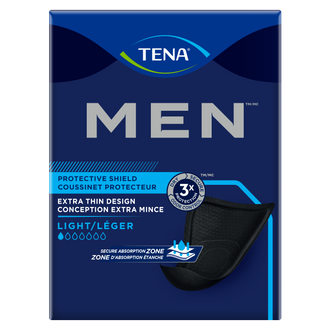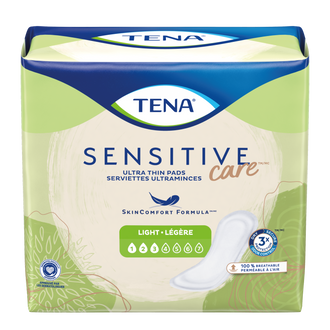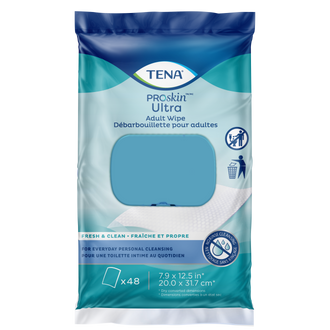Jun 07, 2024
Welcome to the realm of menopause! During this time, your body will undergo various changes, some of which could feel uncomfortable.1 But maintaining a healthy diet full of healthful, nutrient-dense foods can help ease this transition and gives your body the support it needs during this significant shift.2,3
So, let's explore how certain foods can play a role in making your journey through menopause a bit smoother.
Understanding the Effects of Menopause
Menopause isn’t just about bidding goodbye to periods; it’s a profound transformation in a female’s life, signaling the end of a menstrual cycle. Menopause typically occurs around your late 40s to early 50s, although it can vary widely from person to person.1
During menopause, your body undergoes significant hormonal changes, particularly a decrease in the hormone estrogen levels. This hormonal shift doesn't just affect your reproductive system; it affects your entire body, including your muscle mass and metabolism.2 These changes can also cause urine leakage or incontinence, which can be embarrassing and only adds to your anxiety.1
Fear not, there are various remedies available that can help. It's worthwhile to explore incontinence products, such as incontinence panty liners. These liners are thin like regular ones but provide surprisingly secure protection, quickly locking in leaks to guard against occasional drops when exercising, sneezing, or laughing. Designed for comfort and discretion, products like those offered by TENA can help you manage symptoms confidently.
Interested to learn more? Check out some products here.
Here's where it gets interesting (and sometimes frustrating): as your estrogen levels decrease, your metabolism may slow down. These changes in estrogen levels could then lead to increased total body fat and weight gain.2 Plus, hormonal changes can also affect where your body stores fat, often favoring the stomach area.2
So, why does this matter? Well, understanding these hormonal changes and their effects on metabolism and weight is crucial for navigating the menopausal journey with grace and ease.
It's like having a roadmap to better understand what's happening inside your body and how you can support it through diet and lifestyle choices.
Foods to Avoid When Experiencing Menopausal Weight Gain
There are some foods that might be working against you in your battle against menopausal weight gain. Certain foods, like white bread, processed meats, or foods with a lot of added oil or sugar2, combined with a sedentary lifestyle can add those extra pounds making your journey through menopause feel like an uphill climb.2
Here are some foods to avoid when experiencing weight gain during menopause:
Steering Clear of Alcohol and Caffeine
When it comes to managing menopausal symptoms like hot flushes, it's important to be mindful of your caffeine and alcohol intake. Caffeine, found in beverages like coffee, tea, and colas, can worsen hot flushes, so it's wise to moderate your consumption.3
Likewise, alcohol can also worsen symptoms, so it's best to keep within a sensible limit. The general recommendation is to stick to no more than two to three units per day. 3 However, if you find that alcohol triggers or intensifies your symptoms, it may be best to avoid it altogether .3
Cutting Back on Processed Foods
Eating less processed foods like white bread, pastries, sugar-sweetened drinks, or processed meats during menopause is key for several reasons.2 Firstly, these foods are often packed with empty calories2 and lacking in essential nutrients.
Research shows that a diet like the Mediterranean diet, which limits the consumption of processed foods and sugar, works to optimize your health and maintain a healthy weight during this hormonal transition.4
Your risk of developing heart disease also increases during menopause.3 Not only is it important to cut back on processed foods to decrease your risk of heart disease, but it can help you to avoid weight gain during menopause.
Instead of processed snacks, opt for healthier nutrient dense foods that provide a variety of colorful fruits and vegetables, whole grains, and lean proteins.2 And view the ultra-processed foods, like sugary beverages as an occasional treat as they carry extra calories.2
You can reduce your intake of processed foods by cutting down on processed meats, ready-made pastries such as cakes or cookies, and foods with added oils and sugars.2
Limiting Refined Carbohydrates
Refined carbs, such as white bread, pasta, and sugary snacks, can cause rapid spikes and crashes in blood sugar levels7, leading to increased hunger and cravings. This rollercoaster effect can make it challenging to maintain a healthy weight and may worsen symptoms like mood swings and fatigue.
Foods to Support Your Menopause Weight Loss
Let's shift gears and focus on positive dietary choices that can support weight management and overall health during menopause.
Embracing Dairy Products
Starting around age 35, our bodies begin to gradually lose calcium from our bones. However, during menopause, this process speeds up due to the decrease in estrogen levels. This accelerated loss of calcium can significantly heighten the risk of developing osteoporosis.3
Options like lower-fat milk, cheese, and yogurt are fantastic sources of calcium and form part of a healthy diet.3 Incorporating low-fat dairy into your diet supports bone health and helps to maintain a healthy lifestyle, which may also help with menopause symptoms.3
Incorporating Healthy Fats
Healthy fats include unsaturated fats such as monounsaturated fats (avocadoes and olives), polyunsaturated fats (walnuts and sunflower seeds), and omega-3 fatty acids (fatty fish like salmon, and flaxseeds).5
Healthy fats might offer relief from certain menopausal symptoms. They have the potential to lessen the frequency and severity of hot flushes, which are often among the most disruptive symptoms experienced during menopause.5
Opting for Whole Grains
Whole grains, like brown rice, chickpeas and oats3, are champions when it comes to keeping you feeling full and energized for longer periods, making them stellar substitutes for refined grains during menopause.
Unlike refined grains, whole grains are high in fiber3 keeping you full for longer.
Increasing Fruits and Vegetables
All types of fruits and vegetables (fresh, frozen, canned, juiced, or dried) are packed with vitamins, minerals, antioxidants, and fiber, and help keep your body in tip-top shape while managing your wellbeing during menopause.3 Their array of nutrients supports heart health, and bone strength, ensuring you stay healthy during this transformative phase of life.3
Benefiting from Phytoestrogen-Rich Foods
Plant estrogens, or phytoestrogens, closely resemble human estrogen. When consumed regularly and in sufficient amounts, phytoestrogen-rich foods like soya and linseeds, can show mild estrogen-like effects, which becomes particularly beneficial as estrogen levels decline during menopause.3 For some women, these effects may help relieve menopausal symptoms, especially hot flashes.3
References
1. World Health Organization. ‘Menopause’. 2022. Accessed 13 May 2024. Available from: https://www.who.int/news-room/fact-sheets/detail/menopause
2. Johnson, S. ‘Best ways to lose weight during menopause’. 2019. Accessed 13 May 2024. Available from: https://www.medicalnewstoday.com/articles/325386
3. British Dietetics Association. ‘Menopause and diet’. 2024. Accessed 13 May 2024. Available from: https://www.bda.uk.com/resource/menopause-diet.html
4. UChicagoMedicine. ‘Why am I gaining weight so fast during menopause? And will hormone therapy help’. 2023. Accessed 14 May 2024. Available from: https://www.uchicagomedicine.org/forefront/womens-health-articles/2023/april/menopause-weight-gain-hormone-therapy
5. Australian Menopause Centre. ‘The importance of healthy fats what are they?’. 2023. Accessed 14 May 2024. Available from: https://www.menopausecentre.com.au/information-centre/articles/the-importance-of-healthy-fats-what-are-they-a-recipe-you-cant-miss/
6. British Nutrition Foundation. ‘Managing menopause with diet’. 2022. Accessed 14 May 2024. Available from: https://www.nutrition.org.uk/nutrition-for/women/menopause/managing-menopause-symptoms-with-nutrition-and-diet/
7. Holesh JE, Aslam S, Martin A. Physiology, Carbohydrates. StatPearls - NCBI Bookshelf. Published May 12, 2023. https://www.ncbi.nlm.nih.gov/books/NBK459280/
Boost your menopause weight loss with our handy grocery list for your next shop3
Fruits and Vegetables
Leafy Greens
Spinach, kale, Swiss chard, and arugula.
Cruciferous Vegetables:
Broccoli, cauliflower, Brussels sprouts, and cabbage.
Berries
Blueberries, strawberries, raspberries, and blackberries.
Citrus Fruits:
Oranges, grapefruits, lemons, and limes.
Other Fruits
Apples, pears, and avocados.
Colorful Veggies
Bell peppers, carrots, beets, and sweet potatoes.
Whole Grains
Brown Rice
Oats
Whole Wheat Bread
Protein Sources
Lean Meats:
Chicken breast, turkey, and lean cuts of beef.
Fish:
Salmon, mackerel, sardines, and trout.
Legumes:
Lentils, chickpeas, black beans, and kidney beans.
Soya
Dairy and Alternatives
Low-fat Yogurt (preferably Greek yogurt)
Low-fat Milk or Plant-based Milks:
Almond milk, soy milk, or oat milk.
Cheese:
Moderation with low-fat varieties.
Healthy Fats
Nuts:
Almonds, walnuts, and pistachios.
Seeds:
Flaxseeds
Olive Oil:
Extra virgin for dressings and cooking.
Avocados







